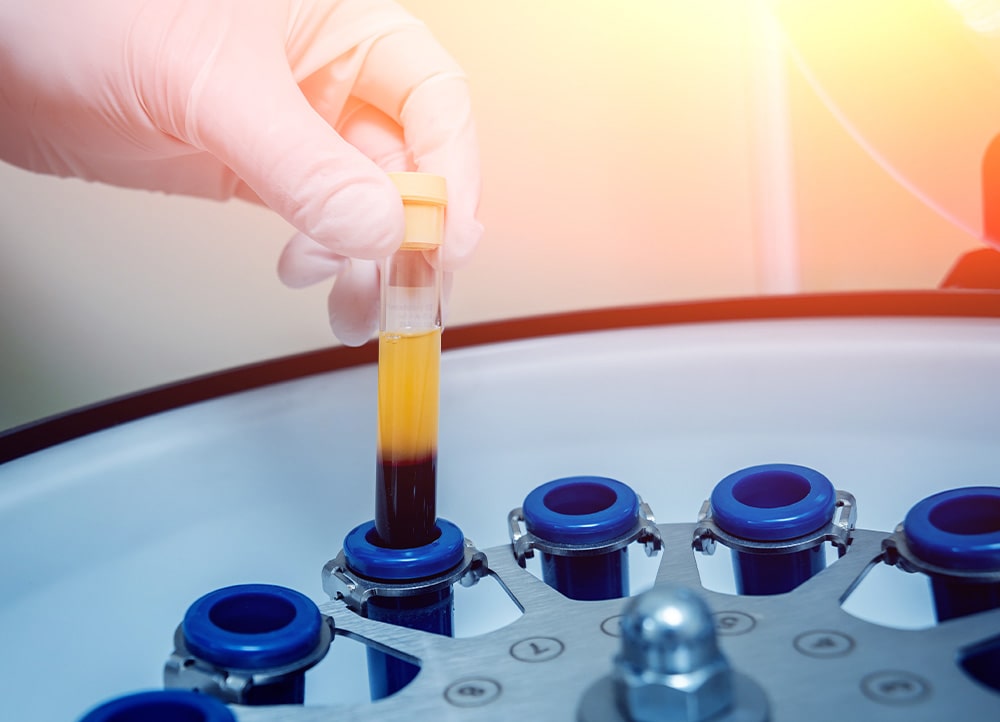Your Guide to Platelet-Rich Plasma
Here’s what you can expect before and after PRP therapy.
Request AppointmentHere’s what you can expect before and after PRP therapy.
Request Appointment
Whether you’ve come across professional athletes touting shorter recovery times, celebrities maintaining a youthful glow year-round, or personally know someone who is treating chronic pain, you’ve probably heard of platelet-rich plasma (PRP). The term PRP has been around since the 1970s, but the treatment has gained significant popularity over recent years. In this article, we discuss the basics of what you should know about PRP so that you can determine if it may be right for you.
Regardless of the purpose of your PRP treatment, the process is more or less the same. A medical professional will draw whole blood from your body before passing it through a centrifuge. This process separates your plasma from your red blood cells so that the plasma can be combined with a higher platelet concentration.
Once your doctor has prepared the PRP injection, they will inject the areas of your body being treated. Depending on what areas are affected, they may use an ultrasound machine during the process. Below, we go over the primary purposes, side effects, and what you can expect before and after PRP therapy.
PRP injections are very popular in sports medicine and have commonly been used to treat injuries and pain. Platelets contain proteins called growth factors, which help to speed up the healing process. Everything from chronic tendon injuries like tennis elbow, tissue repair and wound healing, and knee osteoarthritis can be treated with platelet-rich plasma injections.
However, PRP is popping up elsewhere nowadays. Dermatologists use PRP injections to rejuvenate the skin in a treatment nicknamed the “vampire facial.” The therapy has also shown to be effective in treating some causes of hair loss and erectile dysfunction.
Since PRP utilizes your own blood, you may need to stop taking certain medications and supplements before your procedure. Aspirin, for instance, thins your blood, so you’ll want to take a break before treatment. Your doctor will go over what you need to do to prepare.
Most patients don’t experience any serious side effects from the procedure. Depending on where you receive injections, you may have some soreness or bruising around the area. Additionally, because the therapy requires a blood draw, ensure that you eat before coming in to lessen the likelihood of feeling lightheaded.
Like many forms of regenerative medicine, there are differing opinions on the effectiveness of PRP treatments. Generally, the research looks promising, particularly for knee injuries and tissue repair. While this therapy can take a few weeks of treatments to experience pain relief, the little to no side effects make it a viable option among non-invasive treatments.
If you’re interested in learning more about platelet-rich plasma treatment in Indianapolis, IN, consider getting in contact with Supro Direct. Our physicians will work with you to determine if you’re eligible for PRP. Plus, our personalized approach to primary care means that you can rest assured your treatment plan is tailored to you. Get in touch today to request your appointment!
Required fields*